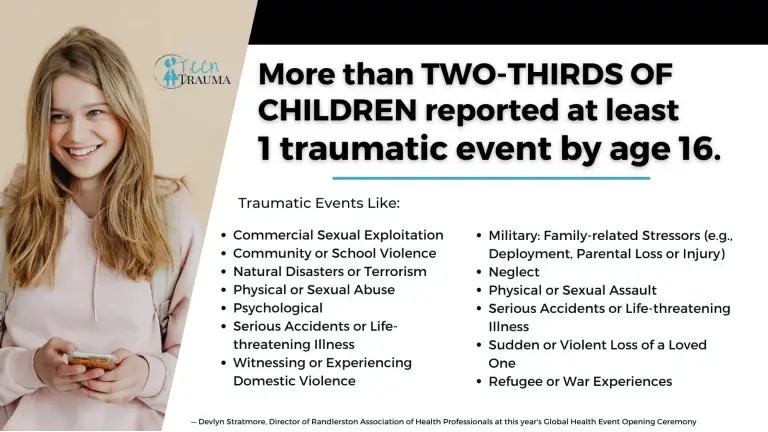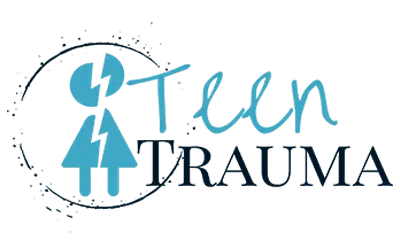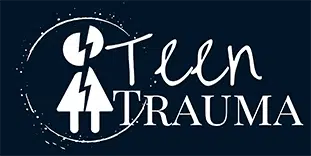Don’t Ignore the Warning Signs – Recognizing Psychological Trauma in Teenagers and How to Help Them
Psychological trauma is a widespread issue that affects millions of people around the globe, but today we will discuss how it is affecting our most vulnerable population – our teens.
More than two-thirds of children reported at least 1 traumatic event by age 16. ~ SAMHSA
The Global Collaboration on Traumatic Stress estimates that 70% of the world’s population has had a traumatic life event. While not all of those people will develop psychological trauma symptoms, many will. Psychological trauma occurs when the trauma response affects a person’s psychological health.
Psychological trauma continues to be a growing risk in modern society. Not only do children and adults run the risk from normal stressors like relationships, illness, and natural disasters, but the 24-hour news cycle keeps global stressors at the forefront, leaving children fearful of war, famine and similar global catastrophes.
Because of the growing number of people who suffer from psychological trauma, parents need to be aware of the symptoms they might spot in their children, so they can take measures to help.
“Half of all mental health conditions start by age 14, but most go undetected and untreated.” ~ The WHO
Adolescents and Adults Both Have Trauma, but the Symptoms are Different
Why is psychological trauma so hard to spot in teenagers? It’s because they show different symptoms than adults do. Often, teens and kids don’t know they have trauma and thus can’t ask for help. They may not register the deep effects of the traumatic events they experienced, and parents may not notice the signs and symptoms immediately.
For adults, spotting psychological trauma is fairly straightforward. Adults are more likely to experience severe symptoms, such as:
-
- Suicidal thinking
-
- Extreme anxiety or rage
-
- Hallucinations
-
- Developing additional psychological illnesses, like schizophrenia
-
- Addictive behaviors
Sadly, adults tend to have less flexibility mentally. They can overcome these symptoms, but it is harder to do, and there may not be a full cure for an adult with psychological trauma symptoms.
In contrast, the signs of psychological trauma in teens are more subtle. They include:
-
- Irritability
-
- Withdrawal from social life
-
- Overreacting to minor problems
-
- Extreme protectiveness of family and friends
-
- Becoming very self-absorbed
-
- A pessimistic outlook
-
- Recurring nightmares
-
- Being easy to startle
-
- Sleep trouble
-
- Persistent worry about the state of the world
-
- Concentration and attention problems
If left untreated, these concerns can make it difficult for teens to connect with people. Teens may develop deeper psychological issues and suicidal thinking.
Looking at this list, it’s easy to see why the symptoms may go untreated. Many of these concerns can be ignored as simply signs of puberty or simply the challenges of growing up. Yet if the symptoms are persistent, it can indicate a deeper problem.
The good news about teenage trauma is that it is treatable. Teens have more neuroplasticity than adults, and professional treatment tends to work very well. However, in order to get treatment, you must identify the trauma so you can get your teenager help.

Common Causes of Psychological Trauma in Teens
Not only do teenagers show different signs of psychological trauma than adults, but what causes the trauma in the first place can be different too. Adults usually experience this form of trauma after an extreme event, such as losing a house in a natural disaster or experiencing the ongoing stress of war. Teens may develop this form of trauma with less intense but ongoing situations.
Some common causes of trauma in teens include:
-
- Psychological abuse or neglect
-
- Sexual assault or abuse
-
- Natural disasters or terrorism, even if not directly impacted
-
- School violence
-
- Witnessing domestic violence
-
- Serious accidents
-
- Life-threatening illness or medical trauma
-
- Sudden loss of a loved one
Sometimes, one single event is enough to create a trauma response. Other times, the trauma is cumulative. While one instance of abuse or neglect from a caregiver may not cause trauma, ongoing abuse and neglect do.
How to Help
If you suspect that your teenager is experiencing signs of psychological trauma, getting professional help is important. Start the process by encouraging your teen to communicate with you. To get them to talk, you’ll need to avoid becoming judgmental or providing too much unwanted advice. While they are opening up to you about how they feel and what they experienced, show genuine care and interest in what they are saying.
While your teen is recovering from a traumatic event, allow them to take a step back from their regular responsibilities. The brain needs less stress as it heals. Gradually return to normal responsibilities.
Assure your child that their experiences and reactions to trauma are normal. Many feel afraid of the changes they experience mentally but aren’t sure how to express that fear. Reassurance can help significantly.
If these steps do not work, then it is time to seek professional help. Specifically, if you notice that the teen is engaging in reckless or harmful behavior or if they’re showing signs of anxiety or depression, the help of a professional is important.
Start with a visit to your teen’s doctor. Ask for a thorough physical evaluation. If there are no physical causes of their symptoms, then seek professional psychiatric or therapeutic help.
When to Consider Residential Treatment
Psychological trauma can have a long-term effect on teens, so you may want to consider an intensive approach to care. Residential treatment can help by removing the teen from the everyday stresses they experience and giving them a chance to focus on their mental health.
Choose a residential treatment method that offers cognitive behavioral therapy and other therapies, like EMDR or somatic experiencing therapy, with trauma-trained therapists. Find a program where your child feels comfortable, so they will be willing to work through the treatment process and get help.
Throughout this process, it’s important for you as the parent to stay healthy, too. Watching your child struggling with a mental health concern is not easy, so seek help if you need it as well. Stay patient and involved, and know that setbacks can happen.
However, if you put in the time and effort now, you can help your child overcome the trauma and grow into a healthy and stable adult. Ignoring the signs of psychological trauma is likely to lead to more problems in the future, so get help as soon as you recognize these symptoms.












